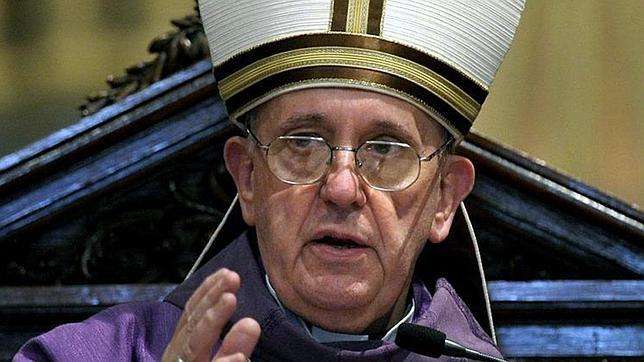Following the spirit of the constitution, the next elections in Venezuela are scheduled for April 14th.
Nicolas Maduro will be the candidate of the PSUV while Henrique Capriles Radonski will be the candidate of the united opposition (MDU).
Chavez’s death has left a legacy in Venezuela similar to that of Peron: a mythical figure that will be remembered by those who have materially benefitted from Chavez’s years as president and by those who see him as a symbol of redemption and independence regardless of any concerns for constitutional democracy.
We have seen these mythical signs of his legacy when Maduro placed Chavez in the same light as “Jesus the Redeemer”. He pointed out that Chavez is the Christ of the poor of Latin America.
Maduro is now trying to imitate Chavez’s style. The day Chavez died, he expelled two American diplomats. Later he accused enemies of injecting cancer into the body of Hugo Chavez, replicating the Palestinian hallucinating claim that PLO chairman, Yasser Arafat, might have been poisoned. Likewise, he continues to accuse Bush Administration figures such as Ambassadors Otto Reich and Roger Noriega of plotting to kill opposition leader Capriles Radonski in order to indict Mr. Maduro and create chaos in Venezuela.
In other words, the uncharismatic Maduro tries to make believe that Chavez is still alive while Chavez himself receives a status similar to Jesus whose death symbolizes the redemption of humanity and the poor, in particular.
Support for the Bolivarian revolution still prevails in the region. Chavez ally, Ecuadorian president, Raphael Correa won the presidency overwhelmingly in February, 2013. There is a good chance Correa may even have the energy and effervescence to lead the Bolivarian revolution at the regional level and fulfill the international role Chavez had. Likewise, it is unlikely that the enabling attitudes of the Workers Party Government in Brazil will change or that the Peronist government in Argentina will withdraw its enthusiastic support for the Bolivarian government and its allies.
The numbers of leaders from the region that attended Chavez’ funeral confirms the unfortunate fact that the tyrant and his Bolivarian doctrine are admired in the region, although not necessarily followed by the majority of Latin American countries.
Parallel to these messianic claims another interesting development took place as Mario Jorge Bergoglio, an Argentinean Cardinal was chosen as the new Pope.
Pope Francis, as former archbishop of Buenos Aires, clashed with the pro-Chavez Argentinean government of Nestor and Cristina Kirchner. These clashes were not the usual battles the Catholic Church had with secular governments on issues such as divorce or homosexuality. The then Cardinal Bergoglio, now, the leader of one billion Catholics in the world, spoke truth to power to the Kirchners on their authoritarian and megalomaniac style.
Already in 2008, during a conflict with the rural sector, Cardinal Bergoglio demanded that Mrs. Kirchner show some “greatness” and make a gesture to unlock a conflict that began with a one sided decision by the president to impose a tax on the rural sector. Finally, the conflict was resolved because the Vice-president defeated the President’s proposal in the Senate in an act of defiance to the authoritative desires of the commander in chief.
After the vote ended with a defeat for the President and her supporters, the Archbishop choose to hold a meeting with the Vice-President.
In 2010 Cardinal Bergoglio pointed out that; ‘the worst danger is to try to homogenize people’s thoughts”, clearly alluding to Kirchner’s intolerance for dissent. Bergoglio also made a public call to put an end to the “social polarization” also in clear reference to the Government’s increasing antagonism towards its opponents.
In 2011, he issued a strong statement calling to put an end to “boundless ambitions” and criticized the power- hungry character of the Argentinean political leadership.
Most likely the Pope will be watching events in Latin America and it is also clear that he opposes the Bolivarian Revolution and its style.
Pope Francis appears to be an important figure for Latin America who could serve to counter the pro-Bolivarian hysteria. He has the advantage of being known for his concern for the poor and the needy.
But how assertive and effective he will be, remains to be seen.
Let us remember that the Polish-born, Pope John Paul II, played a critical role in undermining communism in Poland. His visit to Poland in the summer of 1979 talking to millions of Poles in Warsaw; subtly criticizing the authority of the state; and stressing the power and independence of individual thought and action, had a major impact on the people who were resisting totalitarian rule in Poland. Hopefully, Pope Francis will play a similar role criticizing the idolatry of authoritarian rulers in Latin America.
But even if this were to be the case, not even the important influence of the Pope would be sufficient to undo the serious problems the Bolivarian revolution has caused Venezuela and large parts of the region. Even though Pope John Paul played a symbolic role in fighting communism in Poland, the actual collapse of communism was the work of many.
Latin America is facing institutional setbacks to democracy and the rule of law. Authoritarianism and anarchy co-exist within countries that seek to consolidate democracies. The question is which system will prevail?
By the same token, the geo-political challenges that the region presents requires action, thought and re-evaluation of business as usual. It needs the work and consciousness of civil society in Latin America. Civil society needs to value freedom and fight for it, too. Civil society like political leaders need to stop thinking in terms of immediate economic reward or welfare and show commitment to a world of freedom. The Pope can do so much.



Artículos Relacionados: